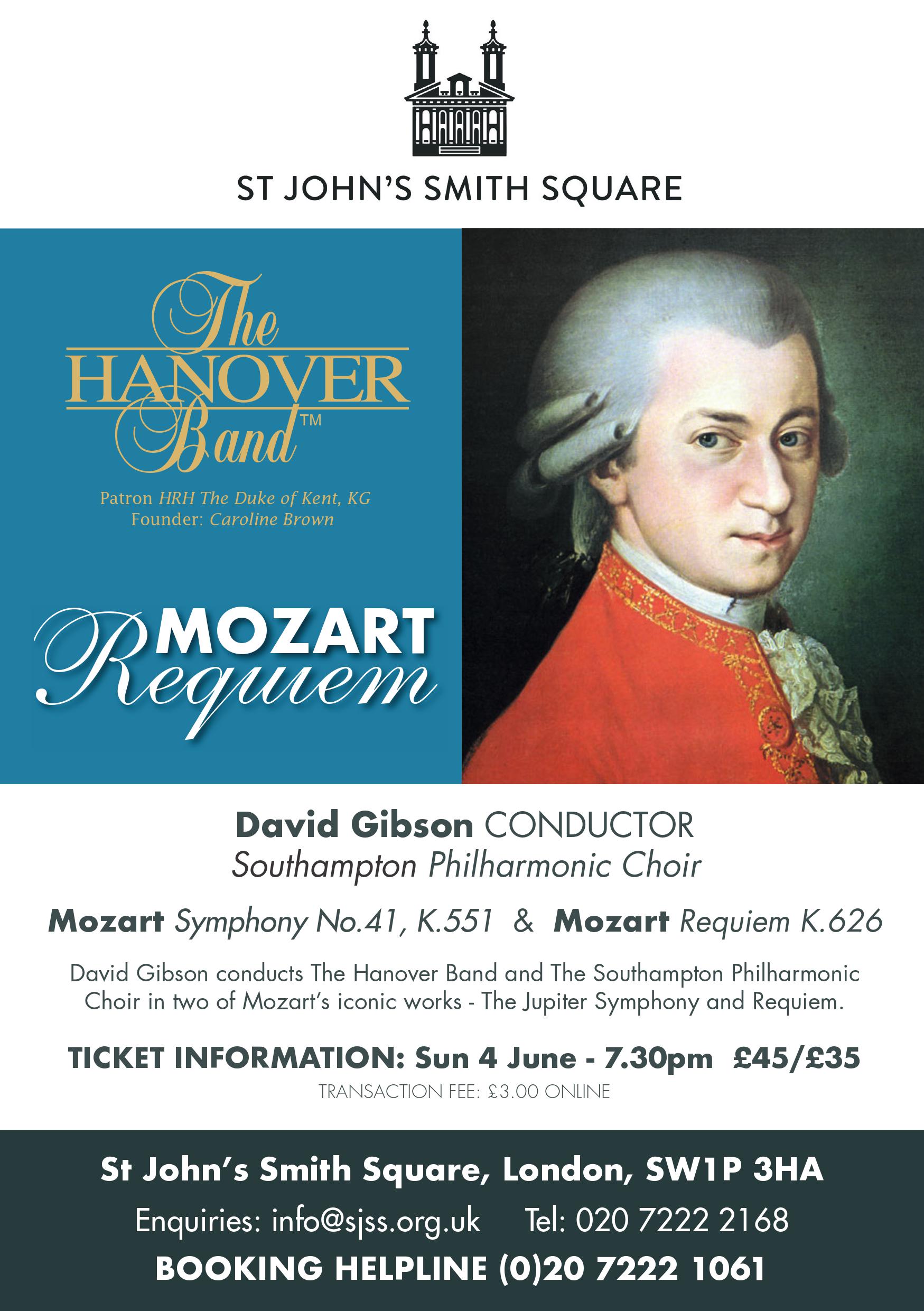Southampton Philharmonic Choir's debut performance at St John's Smith Square as the guests of The Hanover Band.
Southampton Philharmonic Choir and Southampton University Philharmonic Choir are delighted to have been invited to perform with The Hanover Band at St John’s Smith Square on Sunday 4 June 2023 for a programme of music by Mozart.
The Hanover Band, one of Britain’s finest period instrument orchestras, was formed in London in 1980, and has an international reputation for the excellence of its performances and recordings of 18th and 19th century music alongside a commitment to the education of young players and developing new audiences.
Our two organisations have worked together on a number of projects since 2008, when they joined forces for a performance of Handel’s rarely heard oratorio, Theodora. Despite the disparity in the number of members (the choir has some 130 singers at full strength), performing with a period orchestra provides a much more intimate atmosphere for concert-goers, which will be further enhanced in the beautiful baroque setting of St John’s Smith Square.
The exact circumstances of how Mozart came to compose the Requiem are shrouded in mystery and intrigue. The last years of his life were beset by debts and increasing ill-health. During the summer of 1791 a ‘mysterious man in grey’ commissioned the work for a generous fee, but on the condition of secrecy. The work was unfinished at Mozart's death on 5 December 1791, aged 35. Mozart’s wife Constanze initially placed the incomplete score in the hands of Joseph Eybler who orchestrated the Dies Irae but proceeded no further. There is reason to believe that Mozart intended Franz Sussmeyr to complete the work. According to Constanze’s sister, Sussmeyr was at Mozart’s bedside near the end and ‘Mozart was explaining to him how he ought to finish it’. Maximillian Stadler had also been approached by Constanze, and he orchestrated two movements of the Offertorium. By the end of 1792, Sussmayr had completed his task, keeping both Stadler’s and Eybler’s work.
Mozart’s final three symphonies – Nos. 39, 40, and 41 – were composed in nine weeks during the summer of 1788. Symphony No 41 in C Major K.551, nicknamed the Jupiter Symphony, was the longest and last symphony he composed. It is not known whether it was performed in his lifetime, and it has been suggested that all three were composed to entice people back to the concert hall after Vienna had seemingly tired of him. It is regarded by many critics as among the greatest symphonies in classical music.
Tickets
Ticket prices: £45/£35, (transaction fee £3.00 online).
Booking helpline 020 7222 1061
info@sjss.org.uk
St John’s Smith Square
London
SW1P 3HA



